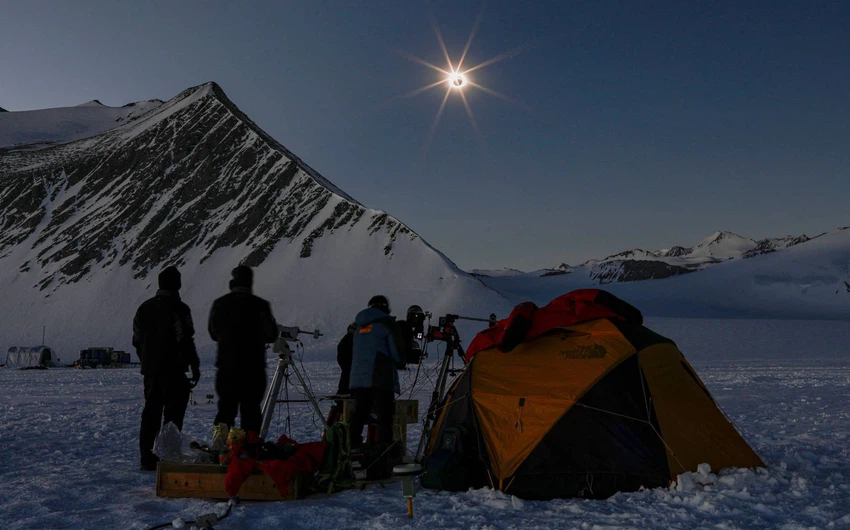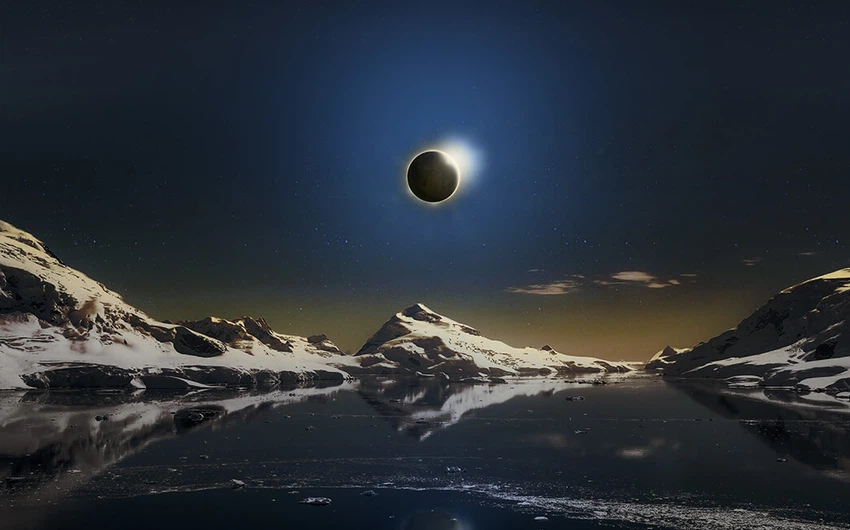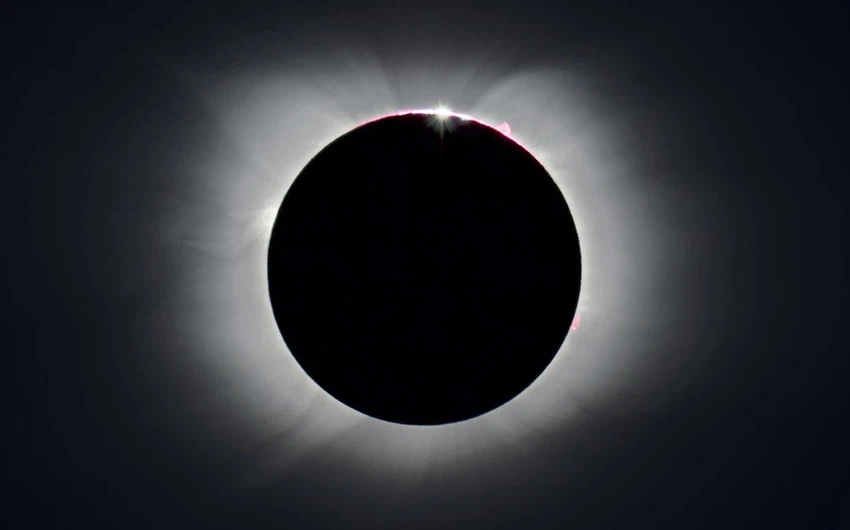After months of continuous daylight, Antarctica experiences two minutes of darkness, and the reason is...
Arabia Weather - The sun has not set in Antarctica since October. The continent, located in the far south of the Earth, is currently witnessing a long summer day, extending from mid-October to early April, during which Antarctica experiences six summer months during which the sun does not set, and another six months of winter during which the sun does not rise.
But this Saturday morning, December 4, darkness swept through the ice in West Antarctica for two minutes , as the moon passed directly in front of the sun, blocking its light in the event of a total solar eclipse.
The path of the eclipse crossed the Argentine, British and Chilean Antarctic regions (consisting of overlapping regions), as well as the unclaimed territory known as Mary Bird Land. Areas along the path saw nearly two minutes of darkness piercing the months of daylight hours.

Meanwhile, the southern fringes of South America, Africa, Australia, and New Zealand witnessed a fairly slight partial eclipse. The eclipse occurred in the early morning in both South America and Africa, while the eclipse occurred with sunset in Australia and New Zealand.
Solar eclipses are known as a relatively rare experience, because the moon's orbit is tilted by 5 degrees relative to the Earth's orbit around the sun, so they don't move exactly in the same plane. However, about every six months, the orbits are aligned to produce a full moon (full moon) eclipse, followed by a new moon eclipse (as seen now), or vice versa.
Solar eclipses happen often, but many people do not see them because the shadow caused by the passage of the moon in front of the sun covers a much smaller part of the earth, moreover, it is difficult to notice a partial solar eclipse, and it is faint compared to the experience of a total eclipse of the sun.
While total solar eclipses occur approximately every 18 months, the ability to see totality is rare, as the width of the moon’s shadow while crossing the Earth is only 100-260 kilometers, and you must be within this narrow path to see the fully eclipsed sun.
That's why eclipse chasers travel around the world to be in the right place at the right time, but when total eclipses happen as far away as Antarctica, penguins will be the lucky ones to get to see them.
Arabia Weather App
Download the app to receive weather notifications and more..






